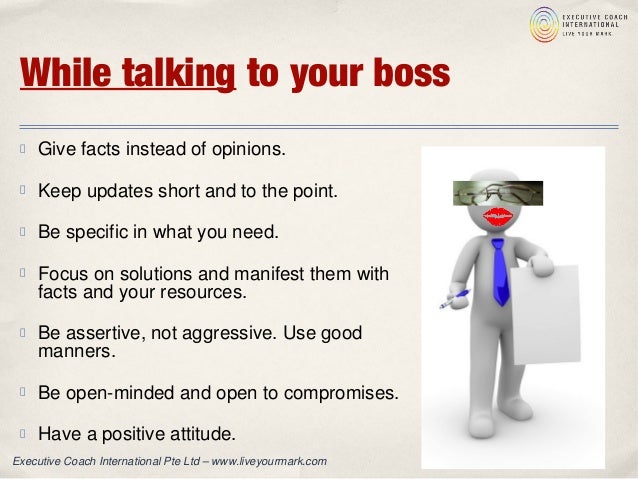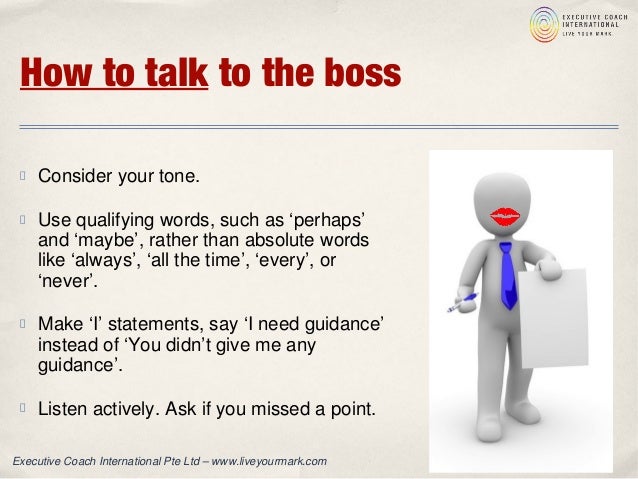How To Talk To Your Boss's Boss About Problems

Navigating workplace issues can be tricky, especially when your direct supervisor isn't addressing them effectively. Knowing when and how to approach their superior is a critical skill for career advancement and maintaining a healthy work environment.
This article provides a concise guide on communicating problems to your boss's boss, ensuring you do so professionally and strategically, minimizing potential repercussions and maximizing the chances of a positive resolution.
Understanding the Threshold
Before considering escalating any issue, first assess if you've exhausted all reasonable avenues with your direct manager. Document all attempts to resolve the problem, including dates, methods of communication (email, meeting), and specific outcomes.
According to a recent SHRM study, approximately 40% of employees feel uncomfortable raising concerns with their direct supervisors, often due to fear of retaliation or inaction. This highlights the importance of having a clear understanding of company policy regarding escalation.
When to Escalate: Clear Red Flags
Escalate only when facing serious ethical violations, legal breaches, or severe misconduct that your manager isn’t addressing. These could include harassment, discrimination, safety violations, or financial irregularities. Always prioritize scenarios where the issue directly impacts your well-being, the team’s productivity, or the company's legal standing.
For example, if you observe your manager consistently making racist remarks and your attempts to address it directly have failed, or worse, were met with hostility, it's time to talk to someone higher up. Similarly, any form of intimidation or sabotage that's blocking your professional growth might warrant a higher-level intervention.
Preparing Your Case: Evidence is Key
Gather concrete evidence supporting your claims before approaching your boss's boss. This includes emails, documents, witness testimonies, and specific examples of the problem. The more data you have, the stronger your case will be, and the less likely your concerns will be dismissed.
Present a clear, concise narrative, focusing on the impact of the problem, not just your personal feelings. For example, instead of saying, "My manager is always rude," try, "My manager's demeaning comments in team meetings are creating a hostile work environment, leading to decreased morale and productivity, impacting our ability to meet project deadlines."
The Communication Strategy
Schedule a private meeting with your boss's boss, explaining that you have important concerns that need to be addressed confidentially. Begin by expressing respect for your direct manager but clearly outlining the unresolved issue and the steps you've taken to try to resolve it internally.
"Mr./Ms. [Boss's Boss's Name], I appreciate you taking the time to meet with me. I've been having some concerns regarding [briefly state the issue] with my direct manager, [Manager's Name]. I've tried addressing it directly through [mention communication methods] on [date(s)], but unfortunately, [state the outcome]."
Avoid accusations or personal attacks, focusing instead on objective facts and measurable impacts. Frame your concerns as issues that affect the overall team or company performance. For instance, emphasize how the problem affects deadlines, resources, or client satisfaction.
Navigating the Aftermath
Be prepared for various outcomes, including a thorough investigation, mediation, or a change in your manager's behavior. Regardless of the outcome, maintain professionalism and avoid discussing the situation with other colleagues. Your discretion is crucial to preventing further complications and maintaining a productive work environment.
Remember that bringing a complaint to someone higher up always carries the risk of negative consequences. Prioritize documenting all communication and actions after the meeting. In some cases, seeking legal counsel can be advisable, especially if you believe you are facing retaliation or discrimination.


















